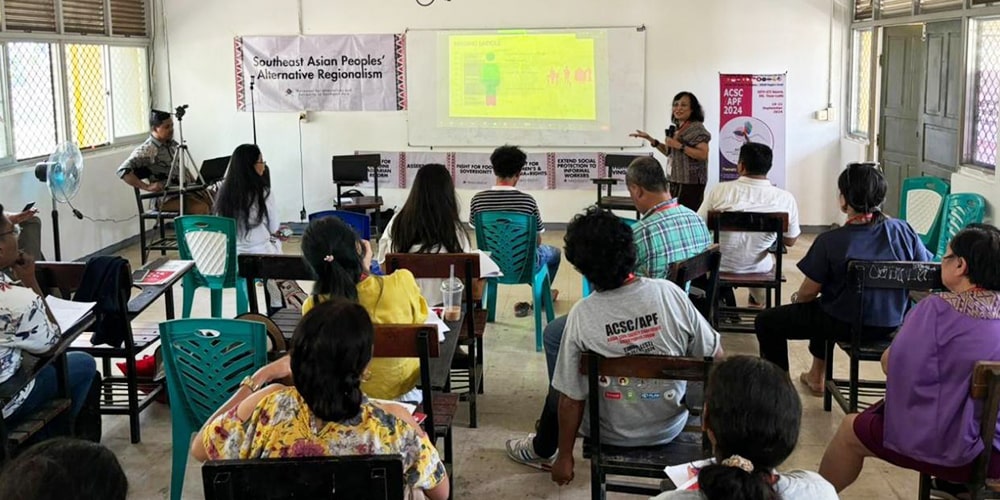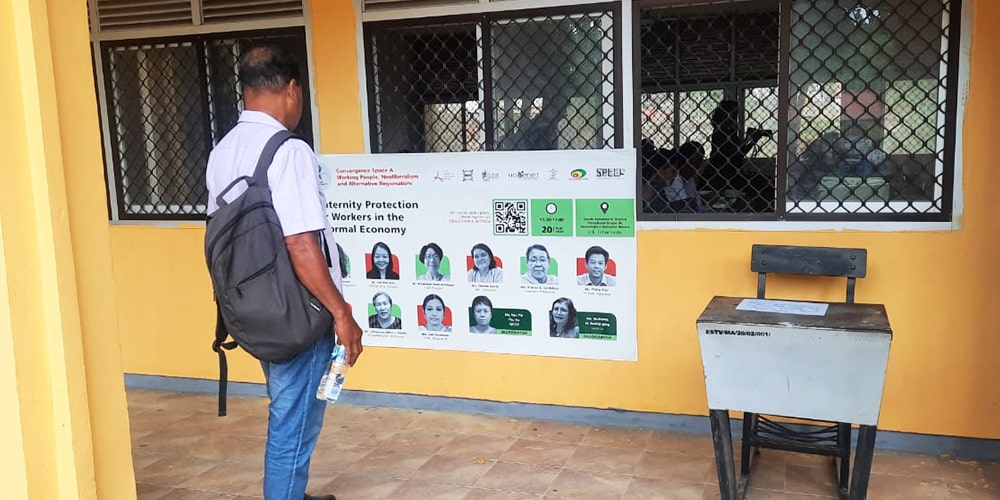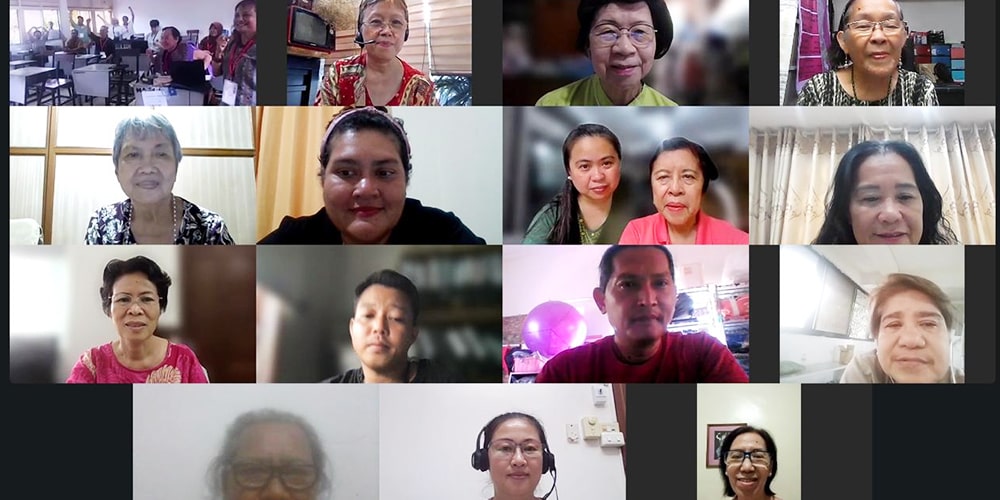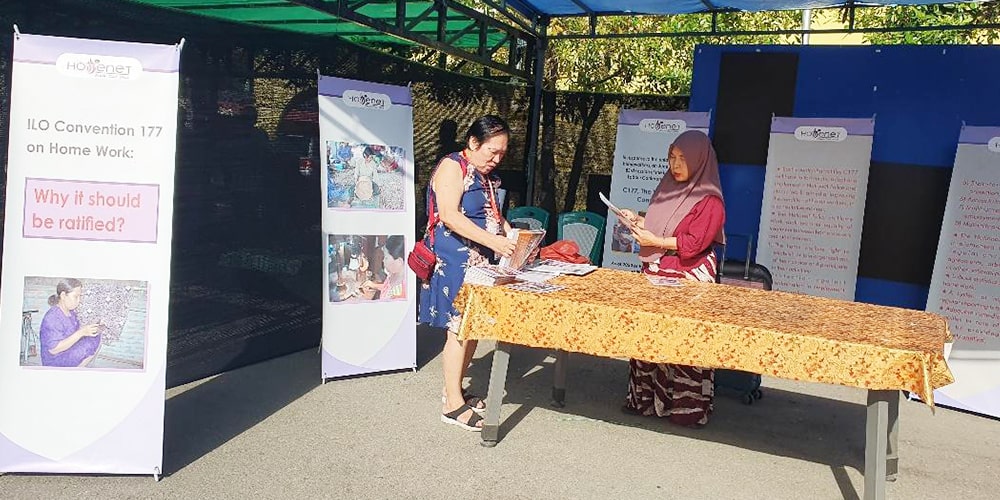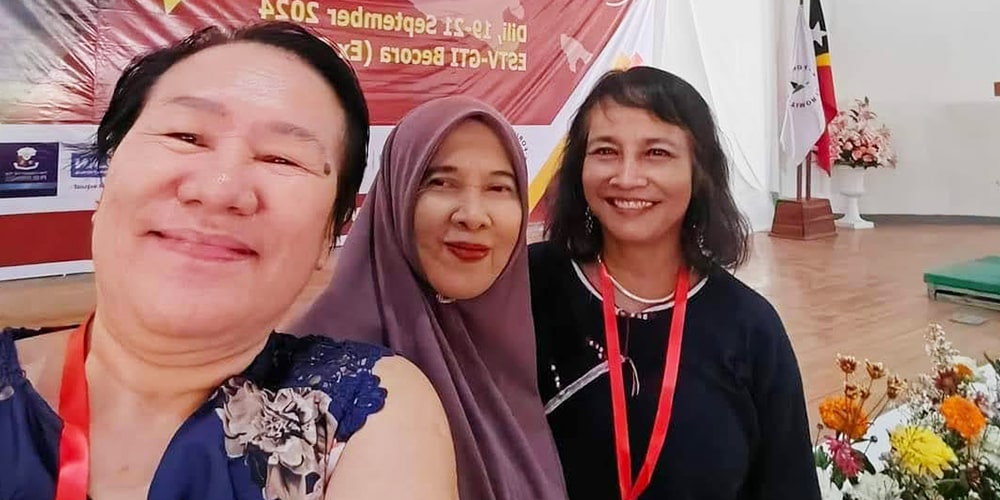From September 19-21, 2024, HomeNet Southeast Asia (HNSEA) sent three representatives—who are also members of the Executive Committee of HNI—to the ASEAN Civil Society Conference/People Forum (ACSC/APF 2024) in Dili, Timor-Leste. This forum is held in parallel with the ASEAN Summit, which will bring together leaders from ten states in the first week of October in Vientiane, Laos PDR. The theme for this year’s ACSC/APF is “Towards a People-led democracy and sovereignty in Southeast Asia.”
During this three-day forum, HNSEA organised an exhibition titled “ILO Convention 177 on Homework: Why It Should Be Ratified.” The exhibition aimed to inform over 500 participants about the significance of ILO C177 and to urge the ten ASEAN member states, including Timor-Leste, to ratify it.
In addition to the exhibition, HNSEA and allied organisations held two workshops:
- “Southeast Asian Working People’s Struggles to Access Decent Work and Universal Social Protection”
- “Maternity Protection for Informal Workers in Southeast Asia.”
A key recommendation from the first workshop, which was accepted as part of the forum’s statement, is as follows:
“ASEAN member countries and Timor-Leste should recognize comprehensive social protection as a human right that must be extended to informal and migrant workers, regardless of their gender, religion, or ethnicity. This should align with universal social protection standards. Financial support for social protection should come from progressive and wealth taxes on billionaires. Building on the 2013 ASEAN Declaration on Strengthening Social Protection, there is a need to formulate laws and policies in accordance with international standards, including C177 on Homeworkers (1996), C189 on Domestic Workers (2011), R202 on Universal Social Protection, and R204 on Transition from Informal to Formal Economy (2015). Ensuring access to healthcare, retirement funds, and unemployment insurance is essential. To strengthen these efforts, ASEAN should engage with civil society, including organisations representing workers, caregivers, and care recipients, in developing guidelines for implementing the ASEAN Declaration on Strengthening the Care Economy. Furthermore, as part of ASEAN’s 2025 plan, a regional public awareness campaign should be launched to emphasise the importance of social protection, targeting both employers and workers to enhance understanding and compliance with these protections.
It is time for ASEAN, its member countries, and Timor-Leste to nurture a transformative care economy—a “purple economy” within ASEAN. With strong political will, ASEAN member states can quickly and decisively develop transformative care policy packages, allocate effective resources, ensure decent care work, and invest more in public services and care infrastructure, especially in rural and mountainous areas. This includes making essential public services available, accessible, and high-quality—particularly pre-primary education for children, childcare centers, after-school care, and healthcare.”
Additionally, the recommendation from the workshop on “Maternity Protection for Informal Workers in Southeast Asia” was the following: “ASEAN member states and Timor-Leste should recognise maternity protection as a basic human right, standardising and expanding universal maternal protection for all women. Improvements in working conditions are necessary to reduce unpaid care work, enabling women to take on more economic roles and promoting gender equality.”


